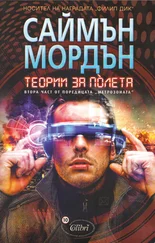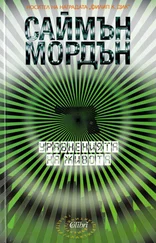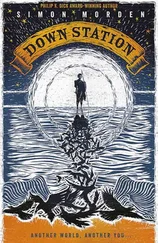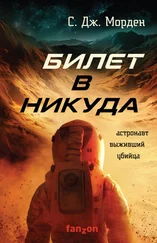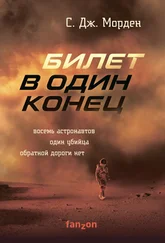“Half eleven.” She clearly expected him to carry on. “On the Tuesday.”
“Good. I thought I’d wasted a whole day.” Pif tried to stand, using her desk for leverage. She wobbled like Bambi, then managed a semblance of upright. “I have good news and bad news.”
Petrovitch passed her a pastry. “Good news, please. My life is so irredeemably pizdets that I can’t cope with anything bad.”
“We haven’t got any competition. I may have been as subtle as a brick casing out the opposition, but we’re in front.”
“Stanford?”
“Out of sight.” She took a few tentative steps and didn’t find them too painful. “Are you sure you don’t want the bad news? I mean, after yesterday, how could it get worse?”
“Well, I was woken up this morning by a desperate American trying to get me to gang up on some very serious Japanese criminals. After breakfast I got picked up by the organitskaya and threatened with not one, but two guns. Then I got kissed by the daughter of the Japanese crime boss right in front of all her bodyguards. To be fair, I haven’t died today, but it’s not even lunchtime yet.”
“I can’t get from the quantum to the classical,” she said.
The gears in Petrovich’s mind spun up to speed. “It didn’t bother Maxwell.”
“Maxwell was a genius standing on the shoulders of other genii. He made a priori assumptions that happened to turn out to be right.”
“He didn’t predict wave-particle duality, or quantum effects.”
“But we can’t ignore them. Can we?” A note of doubt crept into Pif’s voice.
“Yeah. We can. Look at the gravitomagnetic equations. They do just that. And frame dragging works.”
“But… what about chromodynamics?”
Petrovitch reached forward and took one of the sheets of paper from her desk. “You’re doing this ass-backward. You’re trying to mash the electrostrong into gravity and it just won’t work. Well, it might, but remember: it’s supposed to be beautiful, not ugly. This,” he said, shaking the paper, “is ugly. I never liked it. It’s inelegant. What you cooked up yesterday is poetry.”
“If I can’t prove it, it means nothing.” She ripped at the pastry with her teeth, spitting out the cellophane and chewing on what was left.
“Start at the beginning. Ignore everything else. Gravity might not even be part of a theory of everything.”
“It is,” she said, spraying crumbs. “I feel it in my soul.”
“So did Einstein and he took two decades at the end of his life to get precisely nowhere.”
“You said it was poetry.” Pif looked at him reproachfully.
“Ass-backward poetry.” Petrovitch stood in front of the whiteboard with his coffee.
Pif started to say something, and he held up his hand.
She waited and chewed and drank.
“Can you,” he said, his voice no more than a whisper, “derive all the other forces from this equation? If we expand this to be multi-dimensional,” and he swallowed, “we can find out just how many dimensions reality has.”
She looked, and rubbed her eyes. “I… don’t know. I’m too tired to think straight anymore.”
Petrovitch shook his head. “Look, this is your baby. And your math is way better than mine. Go and get your head down: this will still be here when you get back.”
She groaned. “I don’t want to leave it. We’re so close.”
“It’ll be fine. I don’t want to come in here tomorrow and have to pry the finished proof out of your cold, dead hand. I’ll try and do some of the easy stuff—if I can manage that. That still leaves the really hard sums and most of the credit for you.”
“Don’t break the symmetry,” she warned.
“I thought I was supposed to.”
“Try without.”
“I’ll try with, then try without. And I’m going to use some real data, whether you like it or not.”
“Experimentalists. Have I told you how much I hate them?”
“Only about a thousand times.” Petrovitch shrugged. “Science: it works.”
Pif drank her coffee, and summoned enough strength to pick up her rucksack. “Are you sure about this?”
“Go,” he said. “See you in the morning. You can go through my shabby math while I cringe pathetically in a corner, then I can watch you reimagine the whole universe.”
She slung the rucksack over her shoulder. “If you put it like that, I don’t see how I can argue.”
“I might even get some of my own work done. You never know.”
“Boys and their toys,” she said, edging toward the door. “Sam, are you…?”
“Go away. There won’t be any sleep for a week if you crack this.”
She bowed her head, her beaded hair falling forward like a curtain. “Sam?”
“What?”
“I’m glad I’m sharing a room with you. You get me.”
“You mean you’re as dysfunctional as I am, just in different ways? Yeah, that’s about right. Now, in the name of whatever god you believe in, go.”
She nodded. She was halfway out into the corridor when she stopped. “What?” she said with typical directness.
“Police,” said a familiar voice.
“ Chyort voz’mi! ” He launched himself into his chair and folded his arms.
Pif put her head back around the door. “Sam? There’s a policeman here.”
“I know. Send him in, then go home. I’ll be fine.” He pushed his glasses up his face. “He’s not staying for longer than he absolutely needs to. Which is about a minute, if he’s lucky.”
Chain wandered in, blinking. “Petrovitch.”
“Detective Inspector Chain. Found my rat yet?”
“Ongoing inquiries,” he said. He glanced down at Pif’s desk and reached out to pick up one of her equations.
Petrovitch leaped up and slapped his hand down on top of the paper. “Touch nothing. Really.”
Chain held his hands up. “It didn’t look like it was going to break, but if you insist.” He looked around. “I was expecting big machines that sparked and hummed.”
“We keep those in the basement next to the reanimated bodies. What do you want?”
“Oh, I don’t know. How about five hundred thousand euros?”
“Back of the queue, Inspector. I have to be dead before you collect.”
“You think you’re smart?”
“I think I now stand a better chance of staying alive than I would relying on you. And thanks ever so much for sending Sorenson around. Not only did it get us both picked up by Marchenkho, I then had to get farmboy back to Oshicora before he realized his pet coder had gone awol.”
“You’re welcome,” said Chain. He opened a filing cabinet drawer and peered inside. “Interesting character, Sorenson. Did he give you his war hero spiel?”
“He might have mentioned something; it didn’t get him very far. Why?”
“That sort of stuff goes down really well in America, gets the folks onside. He tried it on me, so I thought I’d try and find out what he actually did for Uncle Sam.” He rolled the drawer shut. “It’s not pleasant reading. His civilian file is pretty thick, too. Not like your records—what little there is seems to fit together very neatly.”
“The truth has a habit of doing that.”
“So does something manufactured. You see, I can’t find any trace of a Samuil Petrovitch, aged twenty-two from St. Petersburg at all. Which could mean one of two things.”
Petrovitch pushed his glasses up his nose. “No, don’t tell me. I like games. I’m an Armageddonist with a suitcase bomb and head full of righteous fury, biding my time for, what, six years now before I set my nuke and kill you all. Or alternatively, Russian record keeping isn’t what its supposed to be. Your choice, I suppose.”
“Something’s not right, Petrovitch. I don’t like that. It makes me nervous, and when I get nervous, I get curious. Like a dog with a bone.”
Читать дальше

![Саймон Морден - Билет в никуда [litres]](/books/388091/sajmon-morden-bilet-v-nikuda-litres-thumb.webp)
![Саймон Морден - Билет в один конец [litres]](/books/395533/sajmon-morden-bilet-v-odin-konec-litres-thumb.webp)

